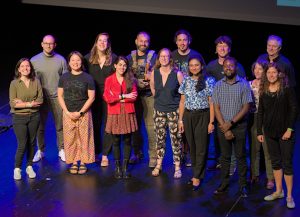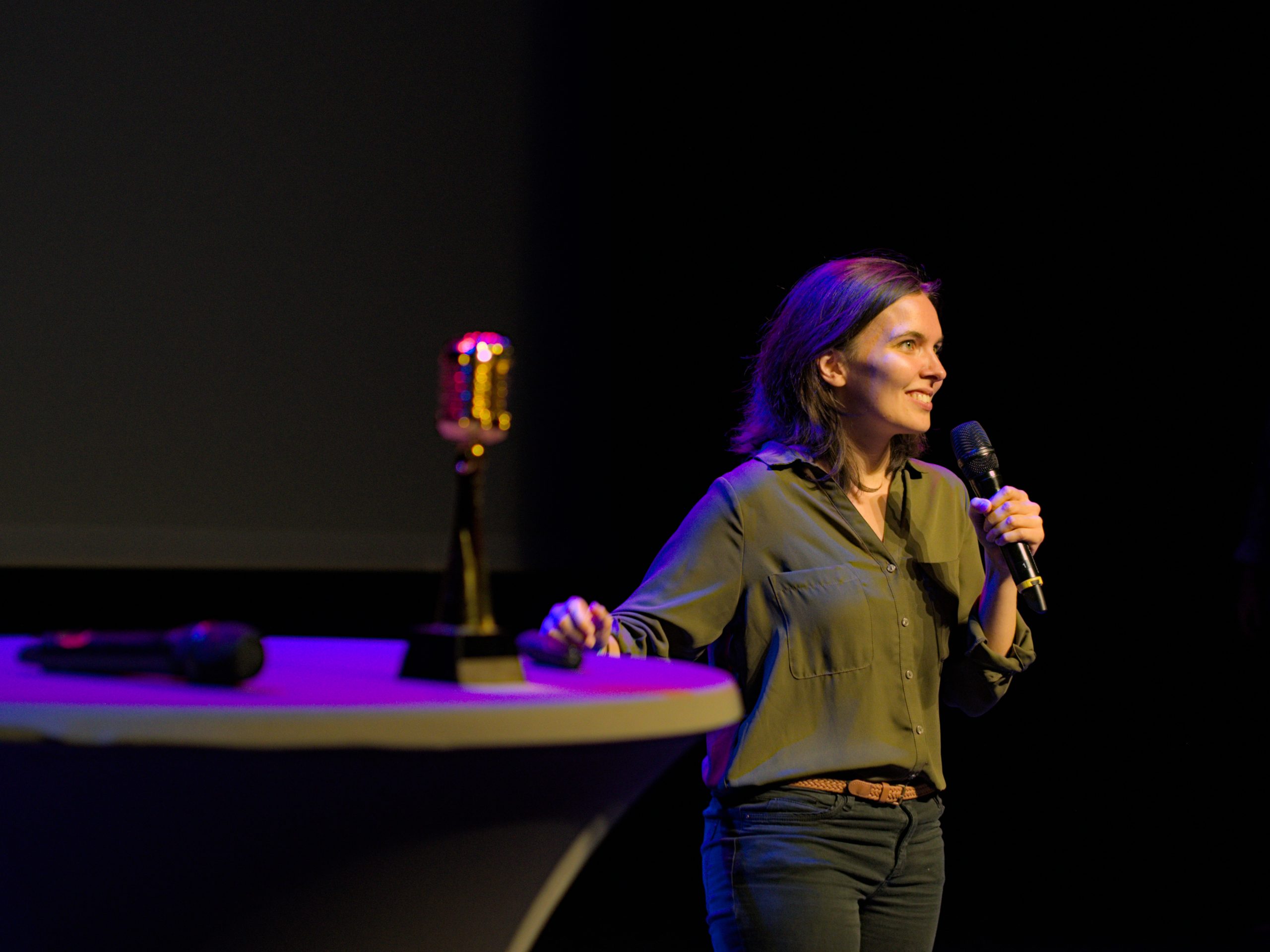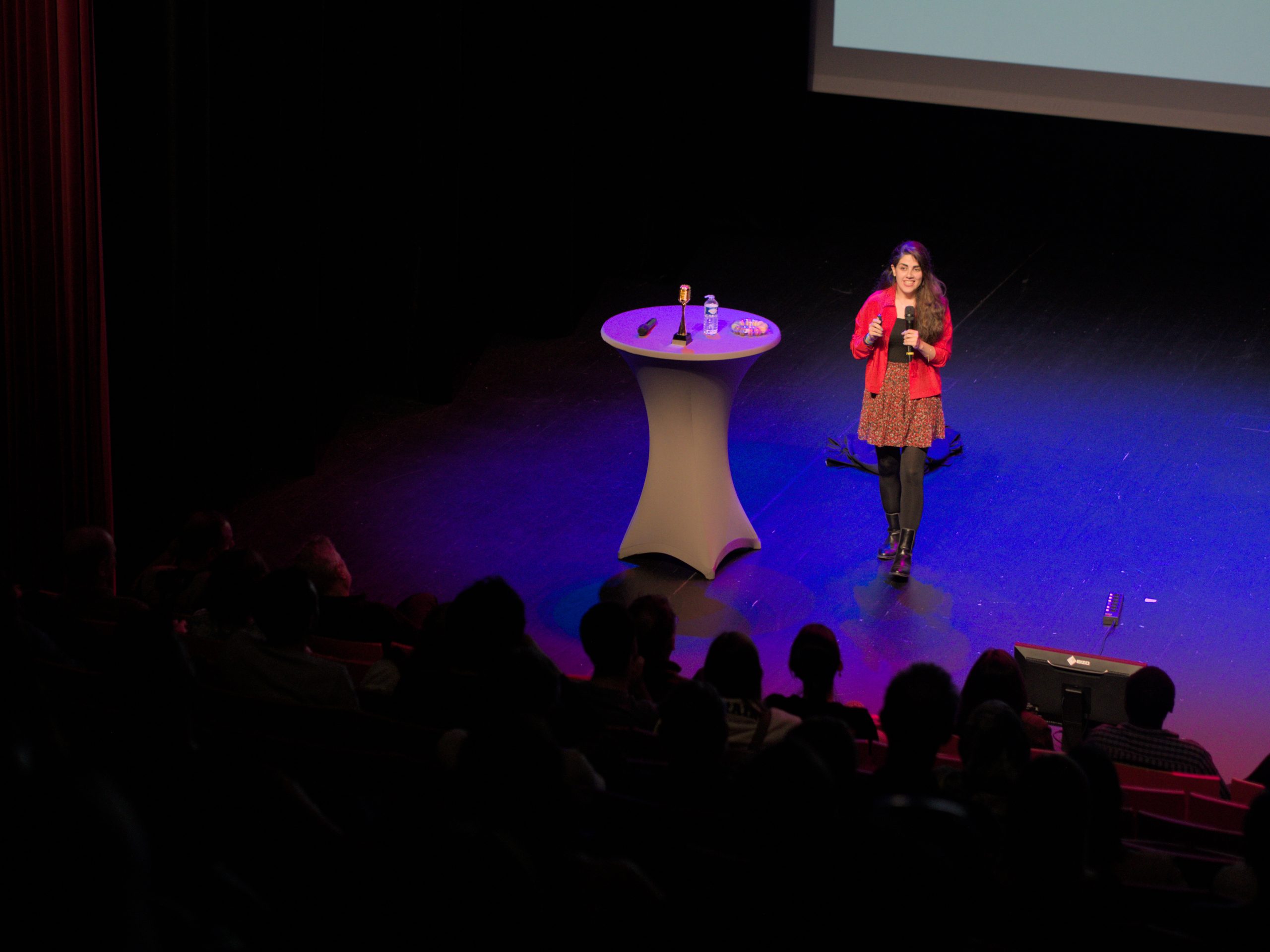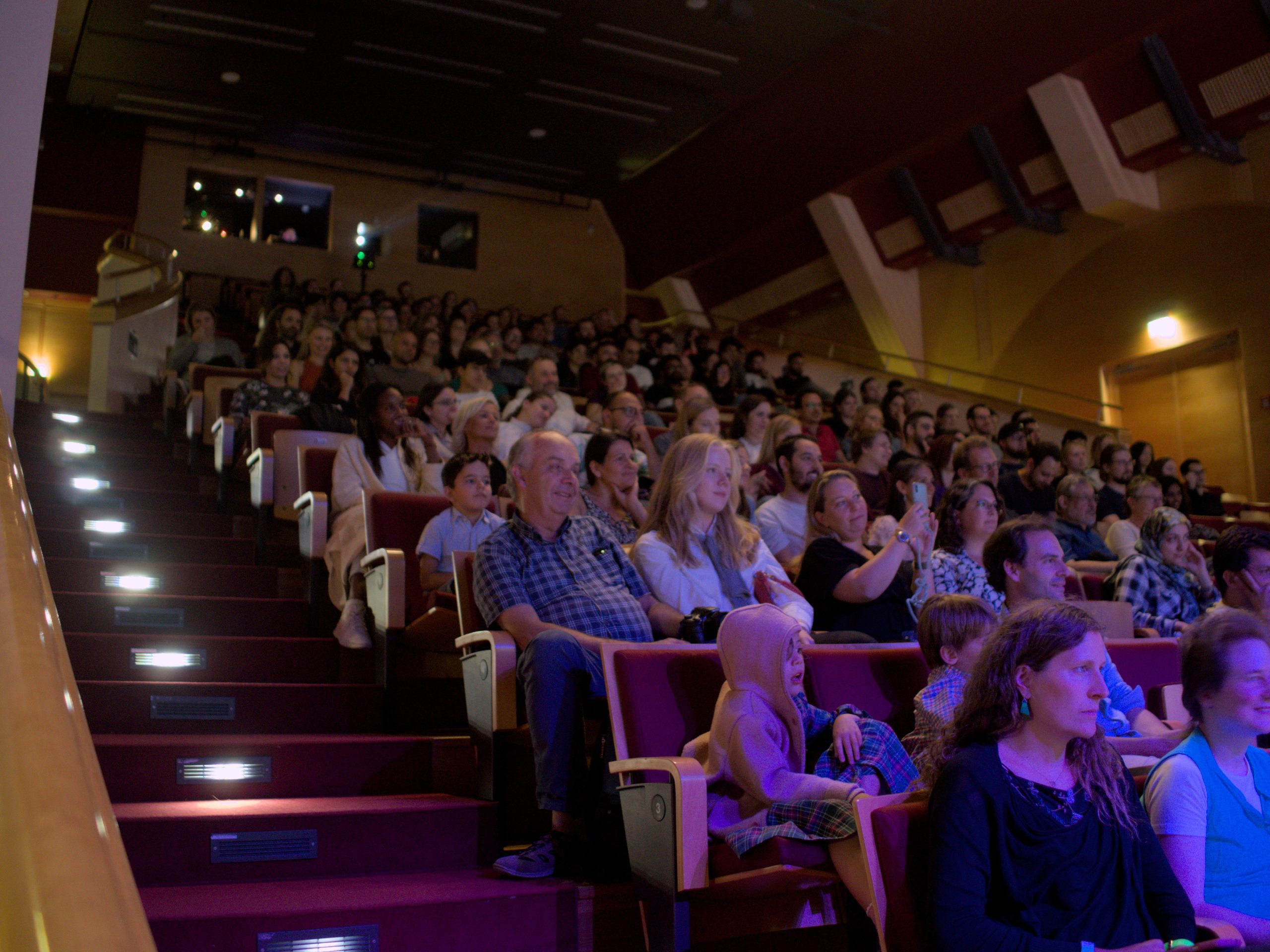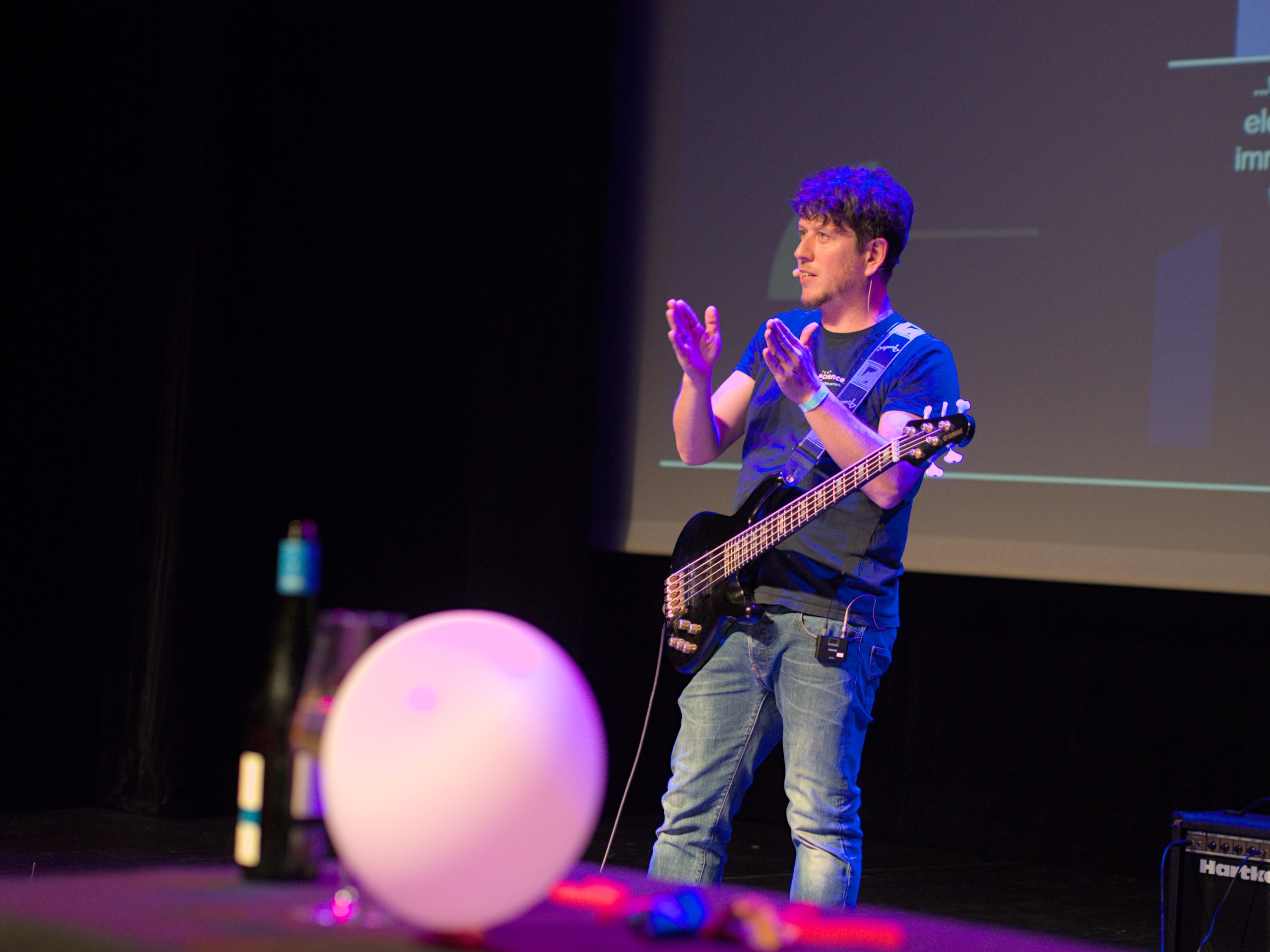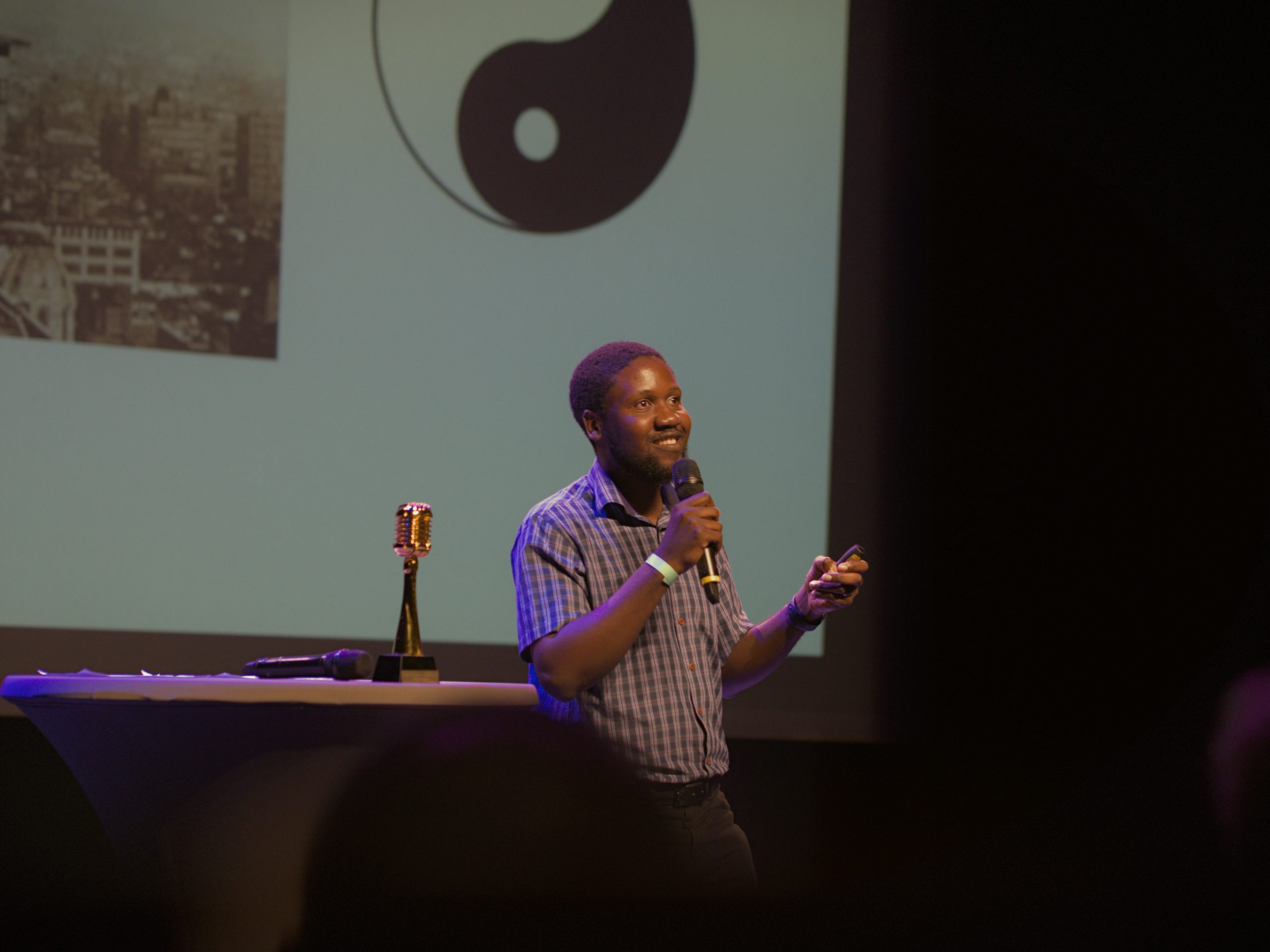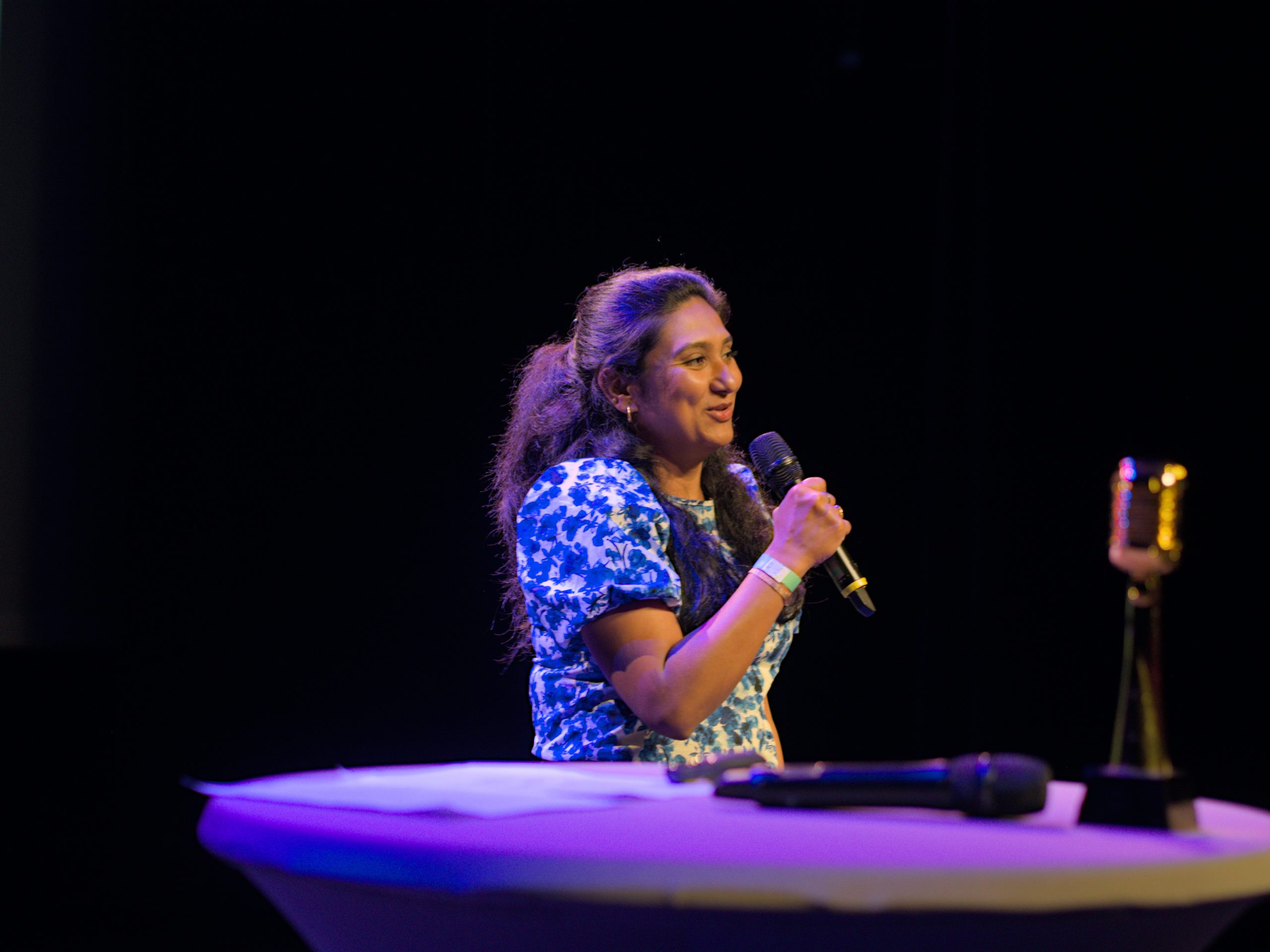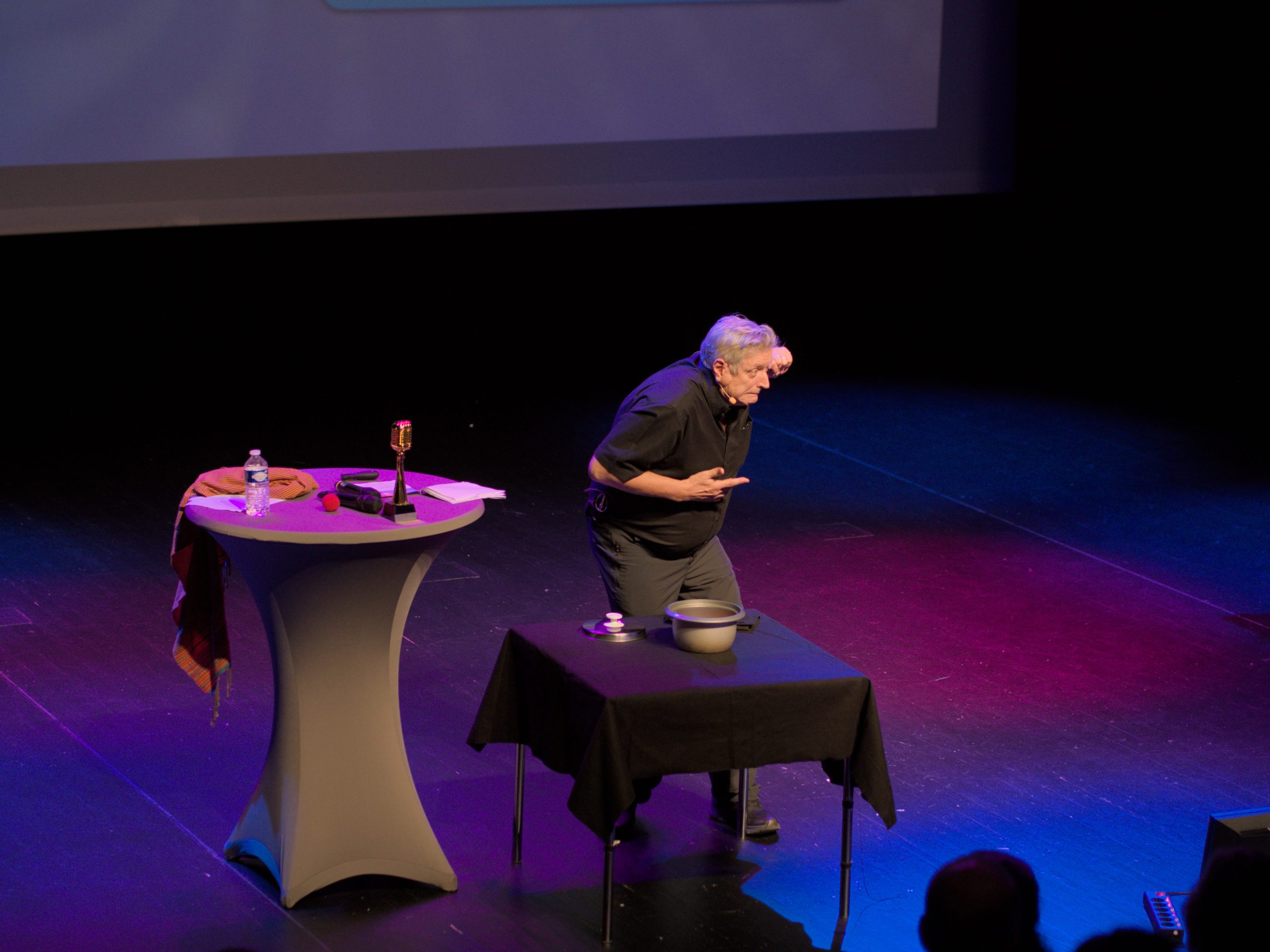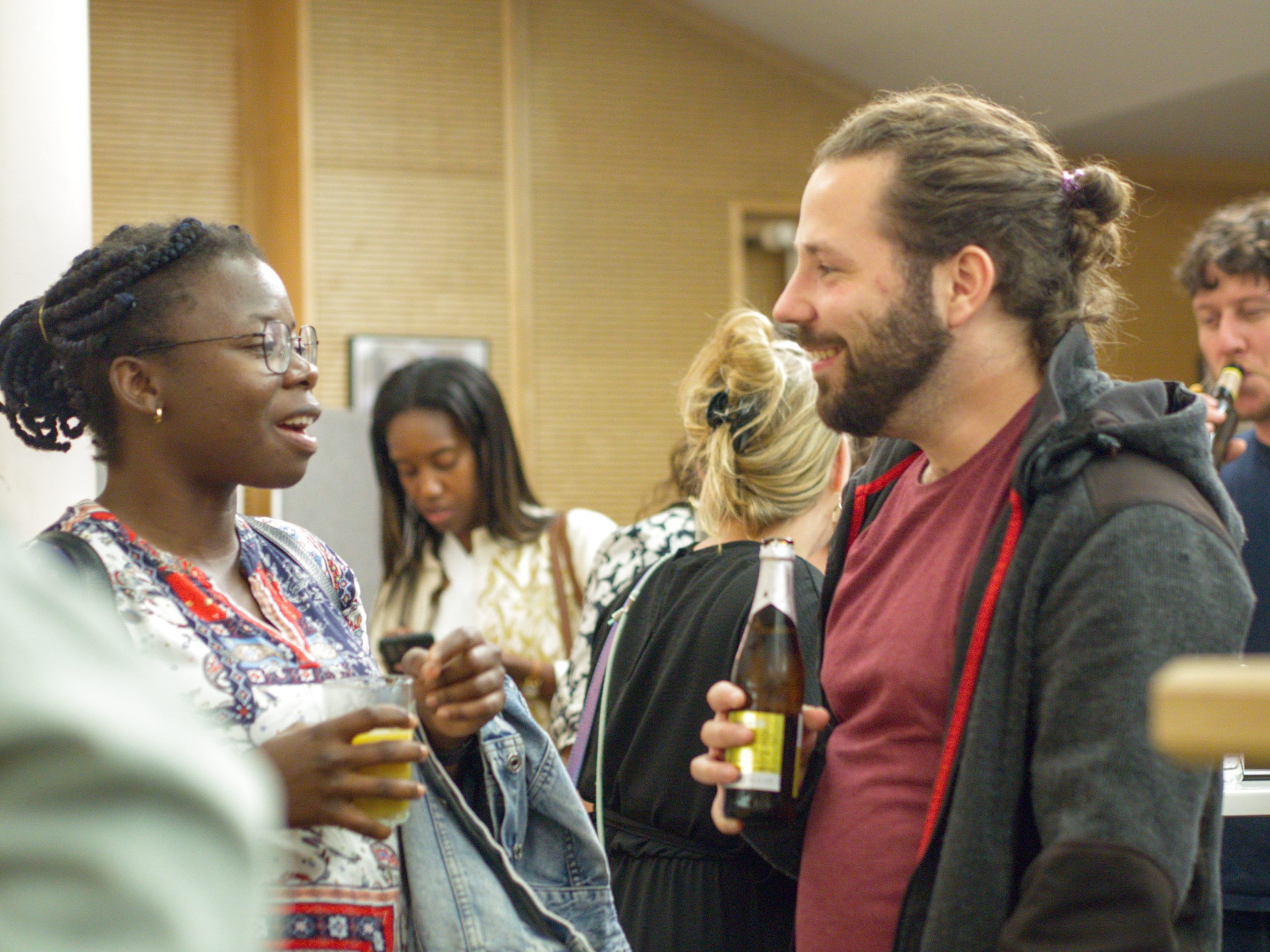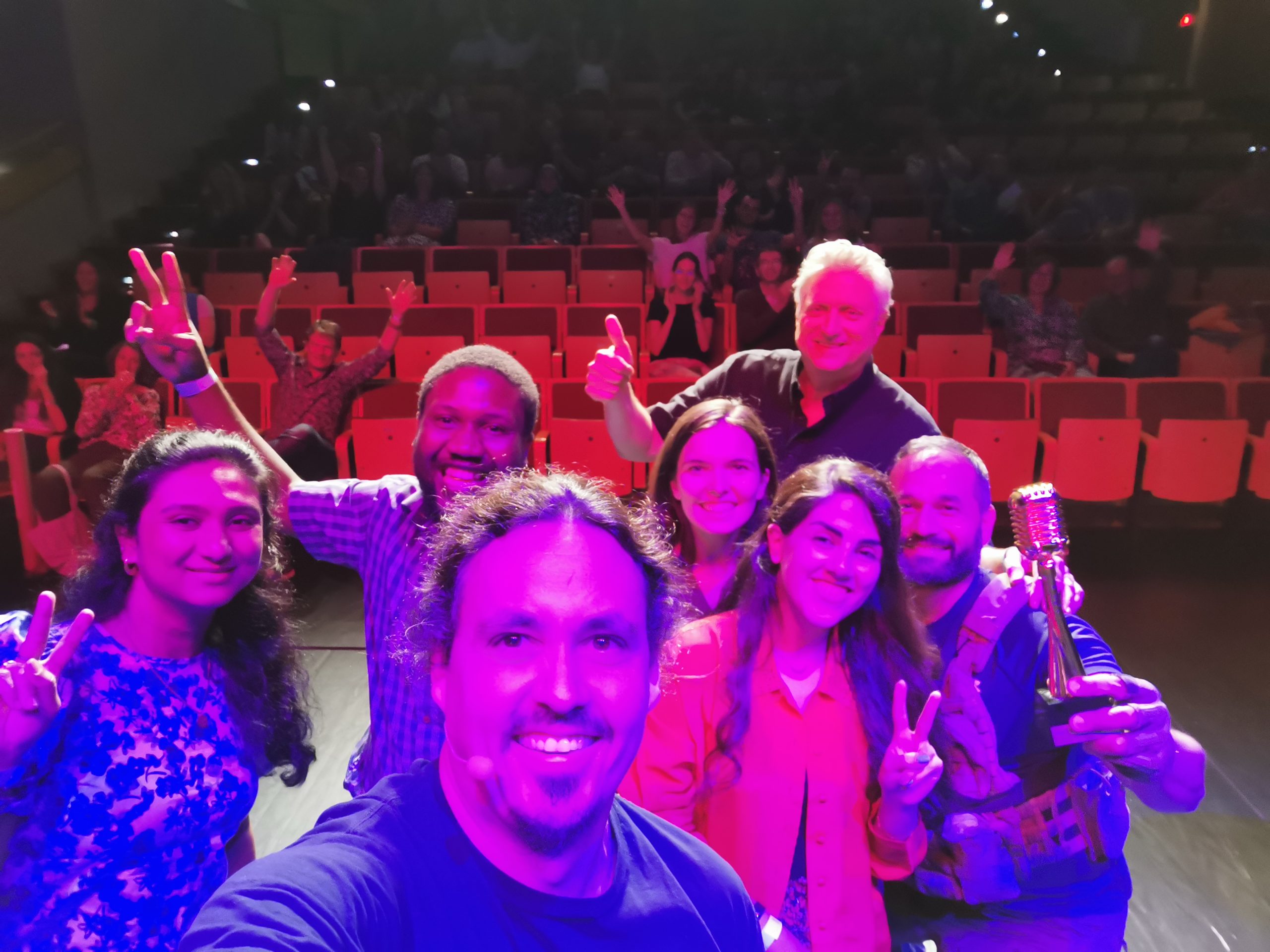Juan Aguilar (opens in a new tab), a doctoral candidate at the University of Luxembourg and University Heidelberg, won Luxembourg’s Science Slam 2023. Each year this event brings six scientists on stage to talk about their research in an entertaining way. Up to 150 people visited the event to hear about science made in Luxembourg. In this short interview Juan Aguilar shares his experiences about sharing his research.
Why did you participate in Luxembourg’s Science Slam 2023?
When I was a bachelor student, I worked as a supervisor at the ‘Science Camp’, which was organised by the Musée National d’Histoire Naturelle in Luxembourg during the summer holidays. Plenty of scientific workshops should get teenagers enthusiastic about the various sciences. I only have good memories of it. So, when I read about the call for slammers, I was sure it would be a similar experience of sharing your excitement about research.
Why is sharing your research important to you?
A couple of years ago, I made documentaries about how I and other digital archaeologists 3D-scanned an Ancient Maya city deep in the forests of Southern Mexico as well as one about our work at Mesopotamian rock reliefs in Northern Iraq. Together with my ‘Science Camp’ experience, science communication has always been important to me. This perfectly aligns with what the Institute for Advanced Studies (IAS), which funds my PhD research, encourages scientists to do, namely, to share the knowledge you gained from doing research. Scientific exploration is a fascinating experience, talking about it in public makes it even greater.
‟ Scientific exploration is a fascinating experience.
Talking about it in public makes it even greater.”
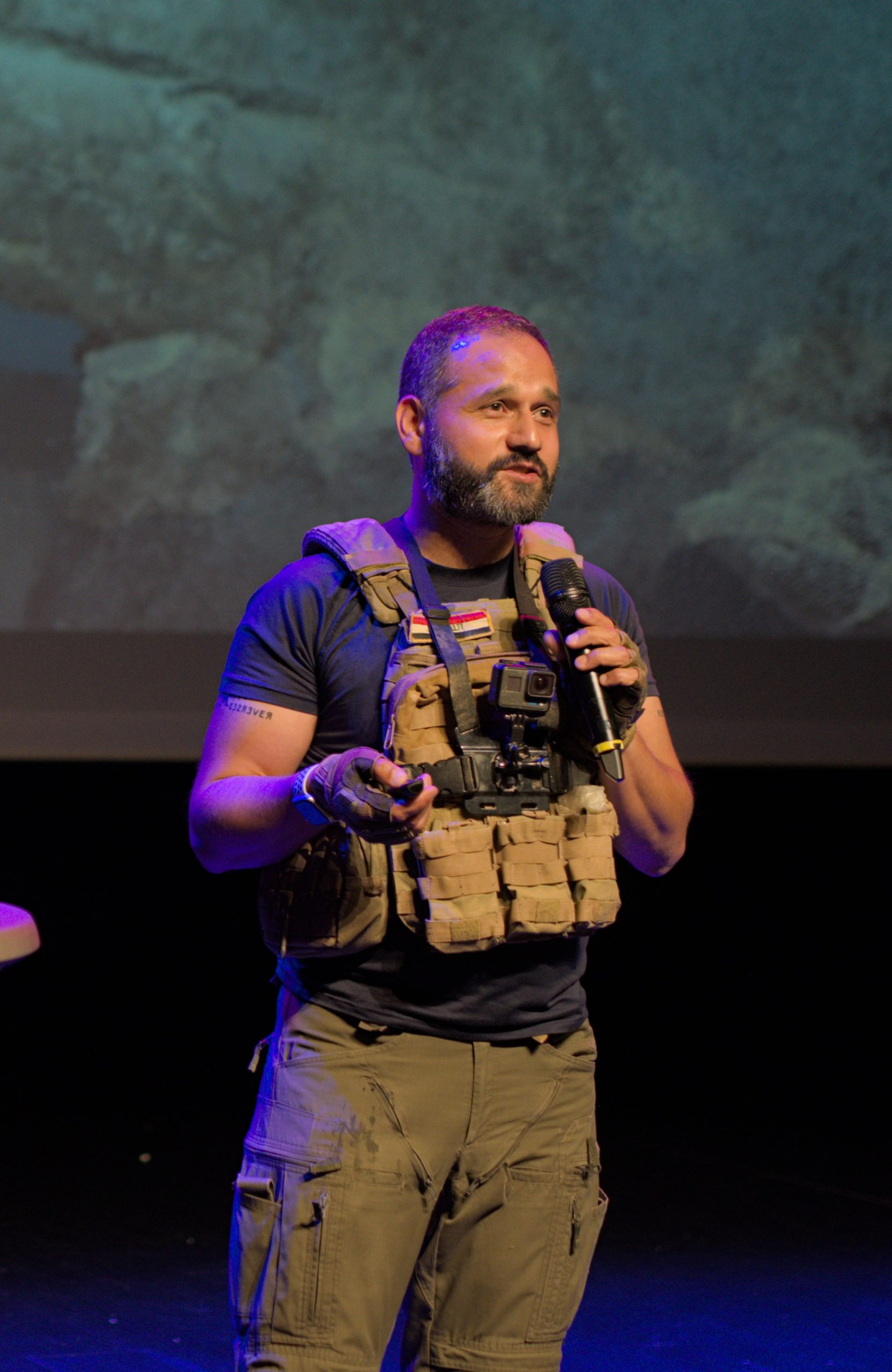
Doctoral Candidate
What was your Slam about?
I presented my digital archaeological PhD research project which aims to recover the cultural heritage site of Tell Nebi Yunus in Mosul, Iraq. The millennia-old site was destroyed by the so-called IS in 2014. I wanted to share my thoughts on why heritage is important as well as my impressions of working in a post-conflict zone. At the same time, I focused on explaining the methodology I apply when working on the virtual 3D reconstruction of Tell Nebi Yunus.
How did you prepare for your slam?
Together with the other science slammers, I received a lot of information from Manuel Maidorn, one of the event organisers, on how to structure my slam and present it. This was already very helpful. Then I also thought that plenty of visuals would help to tell the story of my research. Since I have my digital archaeological data in 3D, I created many 3D animations for my talk. When presenting, this would not leave room for improvisations, but I was sure I would convey the key points in 10 minutes.
How did you like the event?
A lot! It should not be a surprise that a Science Slam is widely different from an academic conference or the like. The audience is there to have a good time and to learn something new. And this you can feel. It gives slammers the space to have a good time as well and to just talk about why they are excited about their research. And when people approach you during the break or after the event, you see that ‘Science Slam’ is not rocket science and that it is a great platform to talk about science.
What did you learn?
I gave several presentations in front of an academic audience, but science slamming would be a different challenge. Not only should our vocabulary be easy to understand, but also key points of concepts and theories with which we scientists work be explained. For me as a digital archaeologist, this meant translating ‘layer III was disturbed’ into a human experience like, for example, showing a friend from abroad what cultural heritage Luxembourg has reconstructed and now has to offer. In this sense, the Science Slam was a great opportunity to rethink my research.
Would you recommend participating as a slammer?
Absolutely! Like I said before, for me science slams are about having a good time and learning something new, and this is also true for slammers. I was very impressed to hear the story of a slammer who is rather shy, but accepted this challenge and later enjoyed the time on stage. The audience is looking forward to hear about your enthusiasm for your research which makes it a very rewarding experience.
Photos: © LuxDoc asbl / Nicla Notarangelo except selfie © Manuel Maidorn
If you would like to become a slammer as well, you can apply to participate in Luxembourg’s Science Slam 2024 by sending an e-mail to scienceslam@uni.lu until 8 July 2024 briefly describing your background, your affiliation and the topic you have in mind. You will be offered a free workshop on 12 July 2024. You will also receive individual coaching sessions with Manuel Maidorn to receive feedback and prepare for your Science Slam.
If you would like to visit Luxembourg’s Science Slam 2024 taking place on 4 October 2024 at Cercle Cité, you can now buy your tickets. More information can be found on scienceslam.uni.lu.
Luxembourg’s Science Slam is organized by LuxDoc asbl in collaboration with DESCOM. The event is supported by the Luxembourg National Research Fund (FNR) and supported by the Luxembourg Institute of Health (LIH), the Luxembourg Institute of Science and Technology (LIST) as well as the University of Luxembourg.
